Strict Hijab Rules Will Cause Banks To Lose Customers – Official
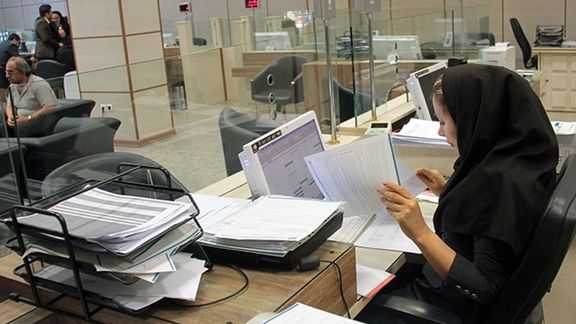
An Iranian banking official says enforcing newly ordered strict dress code – or hijab – restrictions on clients will result in banks losing customers.

An Iranian banking official says enforcing newly ordered strict dress code – or hijab – restrictions on clients will result in banks losing customers.
Mohammad Reza Jamshidi, the secretary of the Association of Private Banks and Credit Institutions, said on Tuesday that “when bank branches want to force out customers who have not observed the desired form of hijab, or do not allow them to enter,” they are bound to lose clients. “They will not even open an account there,” he said.
He added that these new conditions and restrictions have been ordered just a few days ago so “we should wait to see the consequences.”
These issues have caused some people not to accept the position of the manager of the branch and opt to become the deputy head as the branch manager will be accountable for all the responsibilities.
In the past few weeks, authorities have launched an extensive campaign against women they call ‘bad-hijab’. In addition to crackdowns by the ‘morality police’ on streets, some officials have ordered extra measures, including to government offices, banks, and public transportation authorities to withhold service to ‘bad-hijab’ women.
In the jargon of religious and political hardliners women who are unwilling to wear the hijab and display their displeasure by wearing small and colorful headscarves with tight-fitting, short dresses are called ‘bad-hijab’ ones.
Meanwhile, social media posts from Iran indicate many women left home Tuesday without hijab in response to calls from activists to defy the government’s forced dress code.
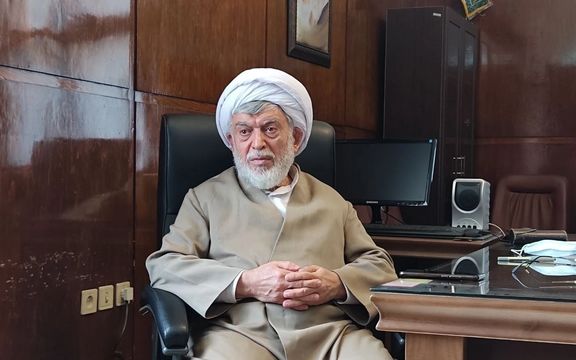
A cleric who has long been a top judge in Iran has acknowledged that the Islamic Republic massacred political prisoners in the summer of 1988.
Hossein Ali Nayeri, one of the judges who was reportedly involved in the summary trial and execution of thousands of Iranian prisoners, defended his action in an interview with the Islamic Republic Documents Center (IRDC) a government entity that collects the history of the 1979 revolution and more than four decades of rule by the Islamic Republic in Iran.
Nayeri is currently the chairman of the Disciplinary Court for Judges in the Islamic Republic, a supervising body that monitors and controls the performance of judges in Iran.
He tried to justify and explain away the killing of thousands of political prisoners, saying: "It was a special situation. The country was in a critical state. If Khomeini [the Islamic Republic's first leader] did not stand firm, we would not have the security we are enjoying today. Perhaps the regime would have not been able to survive. Some 50 to 60 people were assassinated in Tehran and other Iranian cities daily."
Nayeri was referring to hundreds of assassinations from 1981 when MEK was targeting clerics and officials of the Islamic Republic.
In the interview, Nayeri also shed light on the life of the Islamic Republic's first Revolutionary Court Chairman Ayatollah Mohammadi Gilani, who is known for his ruthless treatment of prisoners. Nayeri recalled that Gilani used to say that the revolutionary court's rulings came from God Almighty, "and he would never make any compromise when the order came from God," Nayeri said.
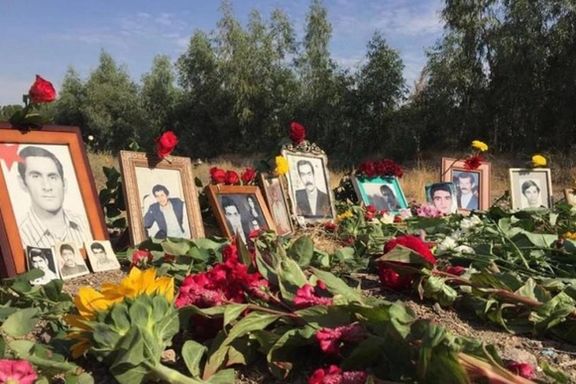
"The critical situation at that time called for strict treatment. We could not run the country by being too soft," he added.
Asked why prisoners who were serving jail sentences or had already served their prison terms were killed, Nayeri said that was because the prisoners conspired against the Islamic Republic.
Nayeri also talked about the rumors that Gilani handed down death sentences for his own sons in the 1980s. Nayeri said the Ayatollah's sons were with the Mujahedin-e Khalq, aka the MeK. He added that Gilani's sons never ended up in jail as they were killed during clashes with security forces in the streets. Asked how Gilani reacted to the killing of his sons, Nayeri quoted him as saying, "I am not even allowed to cry for my children." Nayeri added that Gilani's two sons had long abandoned the family and went their separate ways.
He said that there were a couple of assassination attempts on Gilani but every time he miraculously escaped death.
Speaking about another juncture of the history of the Islamic Republic, Nayeri said that Gilani was a devotee of Khomeini and was one of the supporters of Ali Khamenei when the Assembly of Experts met in June 1989 to choose a new leader for the Islamic Republic after Khomeini's death. He said that both Khomeini and Khamenei always valued Gilani's judgement.
Nayeri was a member of the "death committee" that sentenced political prisoners to die. Iran’s current president, Ebrahim Raisi was also a member of the group. A witness in the Swedish trial of an Iranian over his alleged role in the 1988 prison executions in mid-December 2021 named President Ebrahim Raisi as one of the officials directly involved in the massacre.
In a recent development, Prominent former UN officials have called for a UN investigation into the 1988 "massacre" of political prisoners in Iran, including the role of President Ebrahim Raisi, at that time.
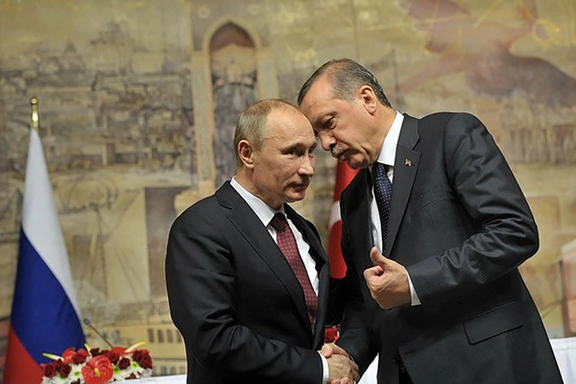
Russia’s Vladimir Putin will visit Tehran next week for talks with Iranian and Turkish leaders within the Astana mechanism related to Syria, Kremlin spokesman Dmitry Peskov said Tuesday.
However, an Iranian lawmaker said that Putin is scheduled to visit Iran to follow up on the plans to further economic cooperation.
The head of the Iranian parliament's economic committee, Mohammad-Reza Pourebrahimi, said on Tuesday that planning for the expansion of economic ties between Tehran and Moscow will be on the agenda of the talks between the two presidents.
Noting that Russians are now more keen on economic collaborations with Iran than in the past, referring to the restrictions imposed on Moscow over its invasion of Ukraine. “The sanctions on Russia by the US and Europe made it more and more in need of economic cooperation with Iran.”
After the 16th meeting of the Astana process in Kazakhstan's capital Nur Sultan in July 2021, Turkey, Russia and Iran pledged to maintain cooperation in Syria to bring the warring sides together to find a permanent solution to the decade-long war.
Initiated by Turkey, Iran and Russia, the Astana meeting is focused on the constitutional system, political transition, security and resettlement. The first Astana meeting was held in Turkey in January 2017 to facilitate United Nations-sponsored peace talks in Geneva.
Late in June, Raisi and Putin held a meeting during their visit to Ashgabat, the capital of Turkmenistan, on the sidelines of the 6th summit of the heads of state of the Caspian Sea littoral states.
US National Security Adviser Jake Sullivan said Monday that Russia wants to obtain hundreds of drones from Iran, both for surveillance and attack, to use in its war in Ukraine.
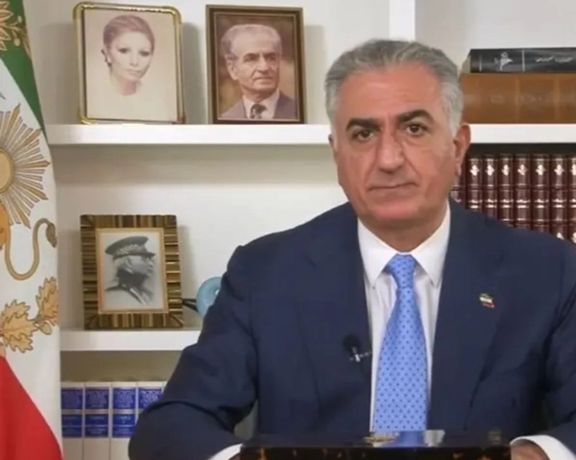
Iran's exiled Prince Reza Pahlavi says as long as Iranian women are not free, Iran will not be free, calling on men to be in the front lines in this struggle to support women.
In a tweet on Monday, Pahlavi highlighted “43 years of Iranian women’s fight to reclaim their obvious and basic rights,” especially the freedom to choose what to wear.
“Iranian men should also stand shoulder to shoulder with women in the front lines of this struggle,” he added in his post that ended with a hashtag to support Iranian women who are protesting against the compulsory Islamic dress code or hijab.
Social media posts from Iran indicate many women left home Tuesday without hijab in response to calls from activists to defy the government’s forced dress code.
Women’s rights and political activists had called for civil disobedience on July 12 with the hashtag of ‘No2Hijab’ in response to a government announcement for a day of ‘hijab rallies’ at stadiums and other venues “to honor, celebrate, and promote” the Islamic notion of the hijab (cover) for women.
For the past few weeks the government has increased harassment of women for their insufficient hijab and many have been detained by special police patrols. This has led to more tension amid economic hardship for 90 percent of the population on fixed income, while inflation has reached 55 percent and food prices have risen by more than 80 percent, according to May-June official reports.
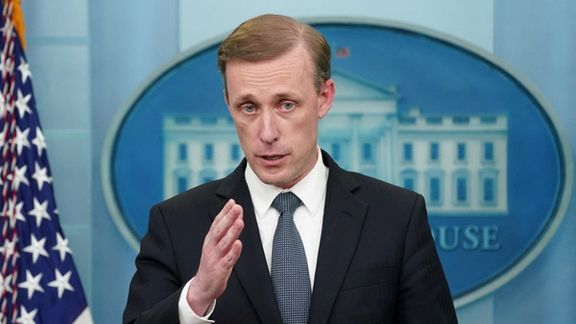
Iran has rejected criticism by President Joe Biden, insisting it is the most stabilizing regional force, as Washington says Tehran may deliver drones to Russia.
Iran’s foreign ministry spokesman Nasser Kanan responded on Tuesday to an opinion article Biden published in the Washington Post July 9, where he said the US will increase pressure on Tehran until it agrees to restore the 2015 nuclear deal known as JCPOA.
“Emphasis by Mr. Joe Biden to continue the economic and diplomatic maximum pressure policy on Iran contradicts America’s stated goal to restore the 2015 agreement and follows the failed path of the Trump administration against the Islamic Republic of Iran.”
Meanwhile US National Security Adviser Jake Sullivan Monday said that Russia wants to obtain hundreds of drones from Iran, both for surveillance and attack, to use in its war in Ukraine.
He said the US has information that Iran is preparing to train Russian personnel to use its drones perhaps as early as this month, but it is not clear if any UAVs have been delivered to Russia.
“Our information indicates that the Iranian government is preparing to provide Russia with up to several hundred UAVs, including weapons-capable UAVs on an expedited timeline,” Sullivan told reporters at the White House, referring to unmanned aerial vehicles.
This is not the first time that the possibility of Iranian weapons going to Russia has come into the open since the invasion of Ukraine began. The Guardian reported April 12 that according to members of Iranian-backed Iraqi militias and regional intelligence services Russia was receiving munitions and military hardware sourced from Iraq, with the help of Iranian weapons smuggling networks.
The report also said that Iran provided a Bavar 373 missile system, similar to the Russian S-300 to Russia and returned an S-300. The Guardian quoted a source “who helped organise the transport.”
The Russian embassy in Tehran denied that Iran was involved in supplying weapons from Iraq to Russia. “The information that appeared in some media about the supply of Iranian weapons to Russia is fake and does not correspond with reality,” the embassy said in a tweet on April 24.
While the Iranian foreign ministry spokesman responded to Biden’s op-ed, he did not mention Sullivan’s accusation of drone transfers to Russia. Some government-controlled media did carry the news about the remarks but did not mention any official reaction on Tuesday.
Iran has not condemned Russia’s invasion and has only called for diplomacy to end “the conflict”. Media in Tehran do not use the word invasion when talking about the war.
The US accusation will have repercussions within Iran’s political scene. Many former officials and pundits have been criticizing Tehran’s close ties with Moscow and its reliance on Russia while nuclear talks with the United States have stalled.
Iran’s economy is in crisis as US sanctions continue and critics say that instead of a deal with Washington, the government increasingly draws closer to Moscow.
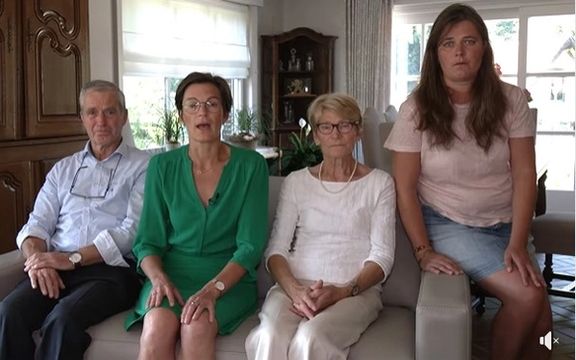
The family of the Belgian aid worker being held in Iran has pleaded to their government to do “everything necessary” to secure his release.
In a video message released on Monday, Olivier Vandecasteele’s family said “Even though he’s innocent, he has been rotting away for nearly five months in total solitary confinement.”
“Today Olivier needs your support... It is unthinkable for our family that our democratic Belgium isn’t doing everything necessary to get innocent prisoners out of countries like Iran,” his sister Nathalie said in the video.
She said her brother had received two consular visits that revealed he suffered major weight-loss and a foot infection, adding that “He has spent two months without even a mattress, in a cell lit up around the clock, and being subjected to daily psychological pressure from interrogators.”
Imploring authorities to get Olivier freed, his mother, who barely manages to fight back tears, said, “Since he finished his studies, he has been far from us to help others. Now, help us to get him out of there and bring him home so we can hug him close.”
Numerous people and groups from around the world have been warning about a prisoner exchange treaty between Belgium and Iran that was passed by the Belgian parliament’s foreign relations committee and will go to the full 150-member chamber July 14.
A draft law could lead to the release of Assadollah Assadi, an Iranian diplomat serving a 20-year prison sentence in Belgium for planning a terror attack in Paris four years ago.